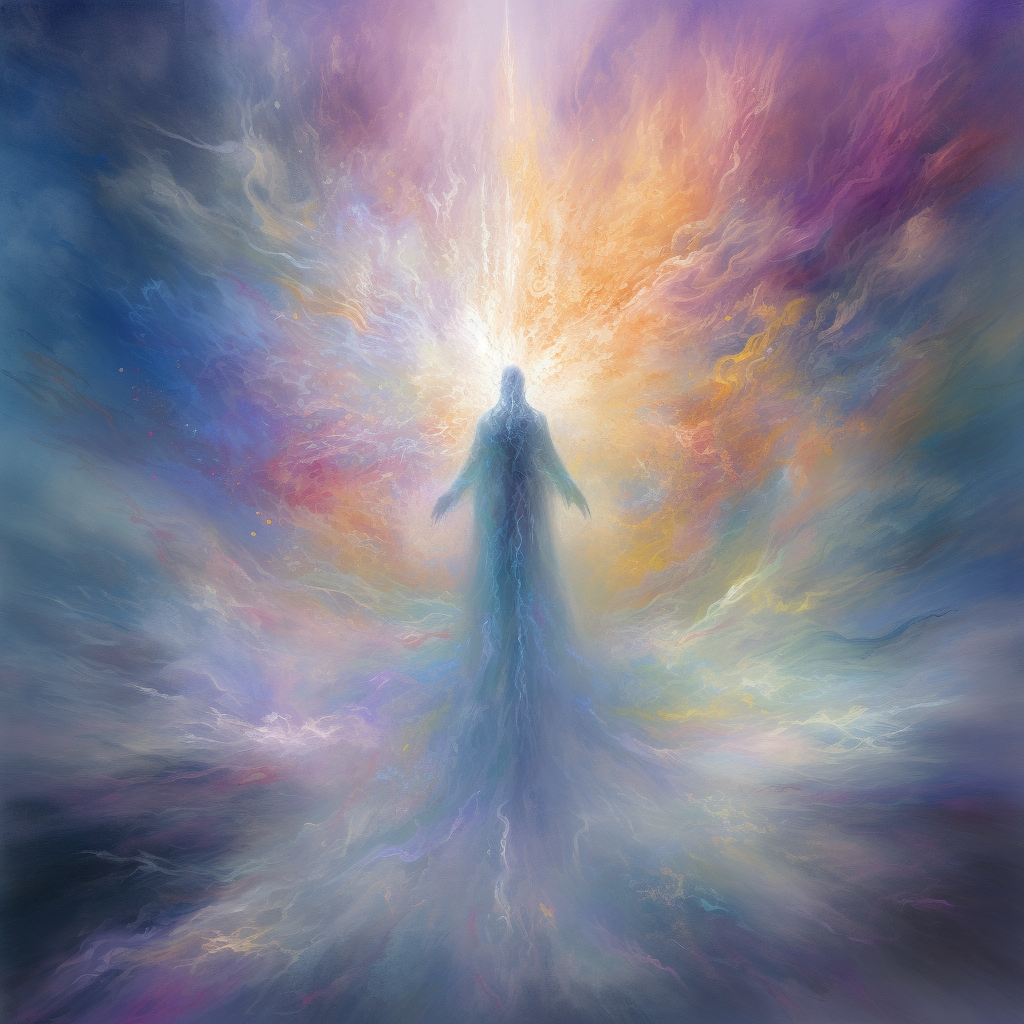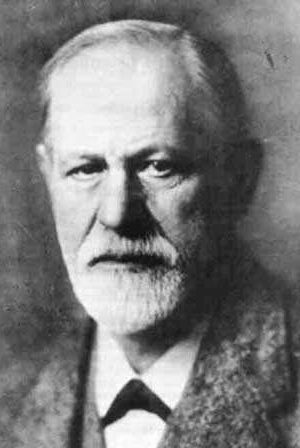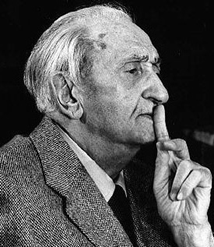霊障の因縁
1. 心理学における「運命の反復」現象は、リポット・ソンディが提唱した「運命分析心理学」に基づいている。
2. この理論によれば、個人の無意識に抑圧された祖先の欲求が子孫の行動に影響を与え、運命を決定する。
3. ソンディは「家族的無意識」を提唱し、個人と群衆の中間に「家族」を位置づけた。
4. 運命の反復は特定の祖先の運命を繰り返す現象であり、おなじ運命と相似した運命の二つのタイプがある。
5. ソンディは運命の反復の原因を遺伝趣性に求めたが、他にも直接の血縁関係でない場合でも現れる例がある。
6. 死者の怨念が生者の無意識に影響を与え、特定の祖先の欲求が子孫の行動を決定することが運命の反復だとされている。
7. 遺伝子に依存しない怨念の伝達機構は、バイブレーションとされている。
8. 運命の反復理論は個人だけでなく、国や社会の歴史にも適用でき、歴史が繰り返されるとされている。
9. 人類の歴史は戦争の歴史であり、戦争による死者の怨念が次の戦争を引き起こすと考えられている。
10. 地球に平和が訪れるためには、宇宙意識のバイブレーションから生じる死者の怨念を消滅させる必要があるとされている。
11. 未来の戦争が人類絶滅の戦争と予言されており、これらの問題を解決することが切実で緊迫しているとの立場が述べられている。
The fate of spiritual disorders
1. The phenomenon of “repetition of fate” in psychology is based on “fate analysis psychology” proposed by Ripot Sondhi.
2. According to this theory, the unconsciously repressed desires of the ancestors influence the behavior of the descendants and determine their fate.
3. Sondhi advocated the “familial unconscious” and positioned the “family” between the individual and the crowd.
4. Repetition of fate is the phenomenon of repeating the fate of a specific ancestor, and there are two types: same fate and similar fate.
5. Sondhi looked for the cause of repeating fate in genetic predilection, but there are other examples of this occurring even in cases where there is no direct blood relation.
6. It is said that fate repeats itself because the grudges of the dead influence the unconscious minds of the living, and the desires of certain ancestors determine the actions of their descendants.
7. Vibration is said to be the transmission mechanism for grudges that does not depend on genes.
8. The theory of repeating fate can be applied not only to individuals but also to the history of countries and societies, and it is said that history repeats itself.
9. Human history is a history of war, and it is believed that the grudges of those who died in war will cause the next war.
10. It is said that in order for peace to come to Earth, it is necessary to eliminate the grudges of the dead that arise from the vibrations of cosmic consciousness.
11. It is predicted that future wars will be wars that will wipe out humanity, and the position is stated that it is urgent and urgent to solve these problems.

先にも述べたが、霊障を伴う因縁がいくつかある。
「横変死の因縁」
「家運衰退の因縁」
「肉親血縁相剋の因縁」
「色情の因縁」
など、ほとんど、霊障のホトヶが霊視される。
○横変死の囚縁
○刑獄の囚縁
○逆恩の囚縁
○肉親血縁相剋の囚縁
○夫の運気を剋害する囚縁
○怨集の囚縁
○ガンの囚縁
○家運衰退の囚縁
○刑獄の囚縁
○中途挫折の囚縁
○色情の囚縁
○循環系統障害の囚縁
○財運・本の囚縁
○肉体障害の囚縁
○脳障害の囚縁
○夫婦縁障害の囚縁
〔五慨しへ格の囚縁
○逆恩の’囚縁
○手繰のうすい因縁
○怨集の囚縁
○夫婦縁破れる囚縁
○消化器病の因縁
○産厄の囚縁
○色情の因縁
○二乗人格の囚縁
○中途挫折の囚縁
○家運衰退の因縁
○婦人科疾患の囚縁
o二重人格の因縁
○財運・水の囚縁
○怨集の囚縁
o手繰のうすい因縁
○色情の因縁
○循環系統障害の因縁
心理学でいわれる反覆強迫観念による「運命の反復」現象である。 多くの人は、このことにあまりにも無知過ぎる。 人間の深層心理に目を向けた近代心理学は、まず、ジークムント・フロイトの、個人の無意識層分析から始まった。次いで、カール・グスタフ・ユングの集合的無意識層(群衆心理学)に進んだ。これに対し、リポット・ソンディは、この二つの層の中間にある「家族的無意識」という無意識の第三番目の領域を、研究対象としてとりあ げた。 つまり、それまでの「個人」と「群衆」の中間に、「家族」を発見したわけである。 これは、無意識の特別な領域であった。ソンディは、この学説を、 「運命分析心理学」 と名づけたが、それによると、 個人の無意識層のなかに抑圧されている特殊な祖先の欲求が、子孫の、恋愛・友情・職業・疾病および、死亡の形式における無意識的選択行動となって、その運命を決定する。 というのであった。 要するに、特殊な先祖の抑圧された欲望や葛藤が、子孫の無意識の意識にはたらきかけて、子孫の恋愛(結婚)・友情・職業・病気・死にかたまで運命的に決定してしまう、というのである。 その結果あらわれる現象が、「運命の反復」である。特定の先祖の運命を、そのまま繰り返すという現象である。 その繰り返しは、まったくおなじ運命を繰り返すという例と、まったくおなじではなく、あるワク内での相似した運命をたどるというものと、二種類あるが、いずれも、ソンディの発見した一つの原則にしたがってその反復現象は起きるのである。(ソンディは、かず多くの例をあげて論証しているが、特に、バルザック、ドストエーフスキーの二大作家の例証は有名である. どうして運命の反復が起きるのか? ソンディは、その原因を、遺伝趣性にあるとする。 しかし、わたくしが考えるのに、この運命の反復のすべての原因を、遺伝塑性のみに帰するのは無理なのである。他にも原因を考えねばならぬのだ。 というのは、義父母、義祖父母、義祖々父母、等々というように、直接の血縁関係でなく、故に、遺伝子(DNA)が遺伝しない間柄においても、明白に 運命の反復現 象が起きているからである。つまり、遺伝子によって遺伝されなくても、特殊な祖先の抑圧された欲求や葛藤は、その子孫の無意識の意識にはたらきかけて、その運命を決定してしまうのである。その実例はいくつもあげられる。 これはいったいどういうことか? 端的に言おう。 「個人の無意識層の中に抑圧されている特殊な祖先の欲求」とは、或る個人の無意風のなかに、特殊な祖先(すでに死者となっている)の欲求 (怨念)が抑圧されていて、その個人(子孫)の行動を決定する、ということにほかならない。 つまり、死者の怨念が、生きている者の無意識の意識を動かして、死者の怨念(欲状)を満足させるための行動をとらせる。それが、死者の人生と同一の道をたどらせることになる。それが運命の反復だ。そして、ここで注目しなければならぬことは、 その死者の怨念の伝達機構である。かならずしも遺伝子によらぬとしたら、いったい、なにがその怨念を伝達するのか? 答は、一種のバイブレーション、というしかないであろう。 ところで、一つの国家、民族、種族は、運命共同体であり、一つの家族である。 運命の反復理論は、そのまま、これにあてはめることが出来るであろう。その場合、 「歴史はくり返す」という現象になってあらわれる。個人の場合は、運命の反復、国、。 「歴shi家・社会の場合は、繰り返される歴史となってあらわれるのである。 人類の歴史は、戦争の歴史である。 戦争による死者の怨念が、生きている人間たちを、次の戦争へと駆り立てる。かくて、はてしなく戦争の歴史が繰り返されるのである。 このままでは、戦争が止むとき、それは人類が絶滅したとき、ということになろう。 宇宙は、宇宙意識によってみたされている。その宇宙意識のバイブレーションの中から、全地球を覆う死者の怨念を消滅させぬかぎり、地球に平和と安穏は、永久に訪れることがないであろう。 以上げた二つの問題をどう解決するか、また、はたして解決することが出来るのか、次に起きる戦争こそ人類絶滅の戦争であると予言されているいま、人類にとってこの上なく切実、かつ緊迫した問題ではないか。 あなたはどう思うか?
心理学でいわれる反覆強迫観念による「運命の反復」現象である。
多くの人は、このことにあまりにも無知過ぎる。
人間の深層心理に目を向けた近代心理学は、まず、ジークムント・フロイトの、個人の無意識層分析から始まった。次いで、カール・グスタフ・ユングの集合的無意識層(群衆心理学)に進んだ。これに対し、リポット・ソンディは、この二つの層の中間にある「家族的無意識」という無意識の第三番目の領域を、研究対象としてとりあ
げた。
つまり、それまでの「個人」と「群衆」の中間に、「家族」を発見したわけである。
これは、無意識の特別な領域であった。ソンディは、この学説を、
As I mentioned earlier, there are some causes that involve spiritual disorders.
“The cause of death”
“The cause of decline in family fortune”
“The relationship between blood relatives and rivals”
“The fate of lust”
Most of the time, the psychic hotoga is seen as a spirit.
○Captivity of horizontal death
○Prison Prison
○ Captivity of indebtedness
○ Captivity of blood relatives and rivals
○ Captivity that harms the husband’s fortunes
○ Captivity of Onshu
○The prison of cancer
○ Captivity of declining family fortunes
○Prison Prison
○ Prisoner of midway failure
○ Captivity of lust
○ Imprisonment of circulatory system disorder
○Financial luck/book captivity
○ Prisoner of physical disability
○ Prisoner of brain damage
○ Captivity due to marital disorder
[Gotoshihe Kaku’s captivity]
○ “Captivity” of indebtedness
○A weak fate
○ Captivity of Onshu
○ Marital bond broken
○Cause of gastrointestinal disease
○Captivity of misfortune
○The fate of lust
○ Captivity of squared personality
○ Prisoner of midway failure
○Cause of decline in family fortune
○ Prisoners of gynecological diseases
o The fate of dual personality
○Financial luck/water captivity
○ Captivity of Onshu
o A weak fate
○The fate of lust
○Causes of circulatory system disorder
This is a phenomenon known in psychology as “repetition of fate” due to obsession with repetition. Many people are too ignorant about this. Modern psychology, which focuses on the deep psyche of humans, first began with Sigmund Freud’s analysis of the unconscious layer of individuals. Next, I moved on to Carl Gustav Jung’s collective unconscious layer (crowd psychology). Ripot Sondhi, on the other hand, took up the third realm of the unconscious, the “familial unconscious,” which lies between these two layers, as his research subject. In other words, a “family” was discovered between the “individual” and the “crowd.” This was a special area of the unconscious. Sondhi named this theory “fate analytical psychology,” and according to it, the special desires of ancestors, which are suppressed in the unconscious layer of individuals, affect the love, friendship, occupation, and illness of descendants. And it becomes an unconscious choice action in the form of death, which determines one’s fate. That’s what it was. In short, the repressed desires and conflicts of special ancestors act on the unconscious consciousness of descendants, and fatefully determine their descendants’ love affairs (marriage), friendships, occupations, illnesses, and death. be. The resulting phenomenon is “repetition of fate.” It is a phenomenon in which a person repeats the fate of a particular ancestor. There are two types of repetition: one where the exact same fate repeats, and the other where a similar fate within a certain work is followed, but both are based on one principle discovered by Sondhi. Repetitive phenomena occur. (Sondi uses many examples to demonstrate this, but the examples of two great writers, Balzac and Dostoyevsky, are particularly famous. Why do fates repeat? Sondi explains why this happens, However, in my opinion, it is impossible to attribute all the causes of this repetition of fate to genetic plasticity alone.We must consider other causes as well. This is because even in relationships such as step-parents, step-grandparents, step-grandparents, etc., who are not directly blood related and therefore do not inherit genes (DNA), the phenomenon of repeating fate clearly occurs. In other words, even if they are not inherited by genes, the repressed desires and conflicts of special ancestors affect the unconscious consciousness of their descendants and determine their fate. I can list a number of them. What does this mean? Let me put it simply. “A special ancestral desire that is suppressed in the unconscious layer of an individual” This means that the desires (grudges) of ancestors (who are already dead) are suppressed and determine the actions of the individuals (descendants). In other words, the grudges of the dead influence the unconscious of the living. The consciousness of the deceased is moved to take action to satisfy the deceased’s grudge (greed).This causes the deceased to follow the same path as his life.This is a repetition of fate.And here… What we must pay attention to is the mechanism by which the deceased’s grudge is transmitted.If it is not necessarily genetic, then what is it that transmits the grudge?The answer is probably a type of vibration. By the way, a nation, ethnicity, or tribe is a community of destiny and a family.The theory of repeating fate can be applied to this as it is.In that case, “history is over.” In the case of an individual, it appears as a repetition of fate, or as a nation. In the case of a historical family or society, it appears as a repeating history. Human history is a history of war. Yes. The grudges of the dead caused by war drive the living humans to the next war. Thus, the history of war repeats itself endlessly. If things continue like this, when wars stop, it will be the end of humanity. The universe is filled with cosmic consciousness.Unless the grudges of the dead that cover the entire earth are extinguished from within the vibrations of cosmic consciousness, there will be no peace and tranquility on earth. It will never come again. How to solve the above-mentioned two problems, and whether they can be solved at all, is the most urgent and urgent question for humanity, as it is predicted that the next war will be the one that will wipe out humanity. mosquito. what do you think?
This is a phenomenon known in psychology as “repetition of fate” due to obsession with repetition.
Many people are too ignorant about this.
Modern psychology, which focuses on the deep psyche of humans, first began with Sigmund Freud’s analysis of the unconscious layer of individuals. Next, I moved on to Carl Gustav Jung’s collective unconscious layer (crowd psychology). Ripot Sondhi, on the other hand, focuses on the third area of unconsciousness, the “familial unconscious,” which lies between these two layers, as his research object.
Got it.
In other words, he discovered a “family” between the “individual” and “the crowd.”
This was a special area of the unconscious. Sondhi describes this theory as
「運命分析心理学」
と名づけたが、それによると、
個人の無意識層のなかに抑圧されている特殊な祖先の欲求が、子孫の、恋愛・友情・職業・疾病および、死亡の形式における無意識的選択行動となって、その運命を決定する。
というのであった。
要するに、特殊な先祖の抑圧された欲望や葛藤が、子孫の無意識の意識にはたらきかけて、子孫の恋愛(結婚)・友情・職業・病気・死にかたまで運命的に決定してしまう、というのである。
その結果あらわれる現象が、「運命の反復」である。特定の先祖の運命を、そのまま繰り返すという現象である。
その繰り返しは、まったくおなじ運命を繰り返すという例と、まったくおなじではなく、あるワク内での相似した運命をたどるというものと、二種類あるが、いずれも、ソンディの発見した一つの原則にしたがってその反復現象は起きるのである。(ソンディは、かず多くの例をあげて論証しているが、特に、バルザック、ドストエーフスキーの二大作家の例証は有名である.
どうして運命の反復が起きるのか? ソンディは、その原因を、遺伝趣性にあるとする。
しかし、わたくしが考えるのに、この運命の反復のすべての原因を、遺伝塑性のみに帰するのは無理なのである。他にも原因を考えねばならぬのだ。
というのは、義父母、義祖父母、義祖々父母、等々というように、直接の血縁関係でなく、故に、遺伝子(DNA)が遺伝しない間柄においても、明白に
運命の反復現
象が起きているからである。つまり、遺伝子によって遺伝されなくても、特殊な祖先の抑圧された欲求や葛藤は、その子孫の無意識の意識にはたらきかけて、その運命を決定してしまうのである。その実例はいくつもあげられる。
これはいったいどういうことか?
端的に言おう。
「個人の無意識層の中に抑圧されている特殊な祖先の欲求」とは、或る個人の無意風のなかに、特殊な祖先(すでに死者となっている)の欲求 (怨念)が抑圧されていて、その個人(子孫)の行動を決定する、ということにほかならない。
つまり、死者の怨念が、生きている者の無意識の意識を動かして、死者の怨念(欲状)を満足させるための行動をとらせる。それが、死者の人生と同一の道をたどらせることになる。それが運命の反復だ。そして、ここで注目しなければならぬことは、
その死者の怨念の伝達機構である。かならずしも遺伝子によらぬとしたら、いったい、なにがその怨念を伝達するのか?
答は、一種のバイブレーション、というしかないであろう。
ところで、一つの国家、民族、種族は、運命共同体であり、一つの家族である。
運命の反復理論は、そのまま、これにあてはめることが出来るであろう。その場合、
「歴史はくり返す」という現象になってあらわれる。個人の場合は、運命の反復、国、。
「歴shi家・社会の場合は、繰り返される歴史となってあらわれるのである。
人類の歴史は、戦争の歴史である。
戦争による死者の怨念が、生きている人間たちを、次の戦争へと駆り立てる。かくて、はてしなく戦争の歴史が繰り返されるのである。
このままでは、戦争が止むとき、それは人類が絶滅したとき、ということになろう。
宇宙は、宇宙意識によってみたされている。その宇宙意識のバイブレーションの中から、全地球を覆う死者の怨念を消滅させぬかぎり、地球に平和と安穏は、永久に訪れることがないであろう。
以上げた二つの問題をどう解決するか、また、はたして解決することが出来るのか、次に起きる戦争こそ人類絶滅の戦争であると予言されているいま、人類にとってこの上なく切実、かつ緊迫した問題ではないか。
あなたはどう思うか?
The desires of special ancestors, suppressed in the unconscious layer of individuals, become the unconscious choices of descendants in the form of love, friendship, occupation, illness, and death, and determine their destinies.
That’s what it was.
In short, the repressed desires and conflicts of special ancestors act on the unconscious consciousness of descendants, and fatefully determine their descendants’ love affairs (marriage), friendships, occupations, illnesses, and death. be.
The resulting phenomenon is “repetition of fate.” It is a phenomenon in which a person repeats the fate of a particular ancestor.
There are two types of repetition: one where the exact same fate repeats, and the other where a similar fate within a certain work is followed, but both are based on one principle discovered by Sondhi. Repetitive phenomena occur. (Sondi gives many examples to demonstrate this, but the examples of two great writers, Balzac and Dostoyevsky, are particularly famous.
Why do fates repeat? Sondhi attributes the cause to genetic predilection.
However, I think it is impossible to attribute all the causes of this repeating fate to genetic plasticity alone. There are other causes to consider.
This is because even in relationships such as step-parents, step-grandparents, step-grandparents, etc., who are not directly blood related and therefore do not inherit genes (DNA), it is clear that
Recurrence of fate
Because the elephant is awake. In other words, even if they are not inherited by genes, the repressed desires and conflicts of special ancestors affect the unconscious consciousness of their descendants and determine their fate. Many examples can be given.
What on earth does this mean?
Let me put it simply.
“Desires of special ancestors that are suppressed in the unconscious layer of an individual” are the desires (grudges) of special ancestors (who are already dead) that are suppressed in the unconsciousness of a certain individual. This is nothing more than determining the behavior of that individual (descendant).
In other words, the dead’s grudges move the unconscious consciousness of the living, causing them to take actions to satisfy the dead’s grudges (greeds). This causes them to follow the same path as the life of the deceased. That is the repetition of fate. And what we need to pay attention to here is that
It is a transmission mechanism for the dead’s grudge. If it is not necessarily due to genes, then what is it that transmits this grudge?
The only answer is that it is a type of vibration.
By the way, a nation, ethnic group, and tribe are a community of shared destiny and a single family.
The theory of repeating fate can be applied directly to this. In that case,
This is manifested in the phenomenon of “history repeating itself.” In the case of the individual, the repetition of fate, the country;
“In the case of historical families and societies, it appears as history repeating itself.
Human history is a history of war.
The grudge of the dead from war drives the living to fight the next war. Thus, the history of war repeats itself endlessly.
If this continues, the only time the war will stop will be when humanity becomes extinct.
The universe is filled with cosmic consciousness. Peace and tranquility will never come to earth unless the grudges of the dead that cover the entire earth are extinguished from within the vibrations of cosmic consciousness.
How to solve the above-mentioned two problems, and whether they can be solved at all, is the most urgent and urgent question for humanity, as it is predicted that the next war will be the one that will wipe out humanity. mosquito.
what do you think?
Modern psychology is
(1) Freud’s personally repressed unconscious layer;
(2) Jung’s collective (crowd) unconscious layer;
近代心理学は、
(1)フロイトの個人的に抑圧された無意識の層、

(2)ユングの集合的(群衆)無意識の層、

の二つの道を歩んできた。
これに対し、
〔3}ソンディは、その中間にある家族的無意識の層を発見したのである。

つまり、個人と群衆のあいだに「宗族」を発見したのだ。これは、当然、出ずべくして出でたものである。個人
にしても群衆にしても、だれひとりとして「家族」でなかったものはない。とすると、当然そこにひとつの無意識司が存在(または形成)されるはずである。
では、その無意識層の中に、ゾンデ″はなにを発見したか?
かれは、「家族的無意識」と名づける無意識層の中に、特殊な抑圧意識を発見したのである。
それは、ひと口でいうならば、
「個人のなかに抑圧されている祖先の欲求が、恋愛・友情・職業・疾病および死亡における無意識的選択行動とたって、個人○運命を決定する」
というのである。
。
ソンディはこういう。
「恋愛・友情・職業・疾病および死亡における選択の分析にもとづいて、選択の根源はこの家族的欲求」
つまり、ひとの、恋愛、友情、職業、病気、死にかたまで、すべて、それらを決定するのは、そのひとのこころの深奥にひそんでいる祖先の抑圧された意識である、というのである。
これは、個人の運命を形成するこれらの選択行動は、意識的・理性的な考慮の上に立つ決断にょって決定されるのではなく、(もちろん表面的にはそれがなされるが、実際には)選択行動は衝動行為であり、衝動的に選択する無意識的なものによって動かされるのだということである。(ここまではフロイトもほとんどおなじである。フロイトとちがうのは、その衝動が、その宗族-祖先-にふかい関連、かおるというのである)
それはなにかというと、ひとの運命を決定するものが、抑圧された祖先の欲求ばかりではないということである。それがすべてではないということだ。それは非常に大きな要因ではある、が、そればかりではないということである。
なぜかというと、密教占星術によれば、運命の「時期」まで決定されているからである。ソンディ理論によれば、「形式」の形成の説明はつくけれども、「時期」が決定される説明はつかない。それは先祖の抑圧意識のほかにも要因、かおるからである。それについてのわたくしの理論と意見はここでは述べない。べつな機会にゆずることにする。かなりに厖大な址となるからである。
ソンディ理論は「平面彬成」(空間)の理論であり、このほかに「立体構成」(時間)の理論かおる。㈲の理論は、ソンディのごとく、心理学的方法でなされるが、時間の理論は数学的方法でなされ、かなりに難解なものになる。これはまたべつな一冊の書物となるであろう。
In other words, he discovered a “sect” between the individual and the crowd. This was, of course, something that was bound to happen. individual
There was not a single person in the crowd that wasn’t part of the family. If this is the case, then naturally an unconscious mind should exist (or be formed) there.
So, what did Sonde discover in that unconscious layer?
He discovered a special sense of oppression within the unconscious layer, which he called the “familial unconscious”.
If I had to put it in one word, it would be,
The desires of the ancestors that are suppressed within the individual determine the destiny of the individual through unconscious choices in love, friendship, occupation, illness, and death.
That is what it means.
.
Sondi is like this.
Based on the analysis of choices in love, friendship, occupation, illness, and death, the root of choices is this family desire.”
In other words, a person’s love, friendship, career, illness, and death are all determined by the suppressed consciousness of their ancestors, which is hidden deep within that person’s heart.
This means that these selective actions that shape an individual’s destiny are not determined by decisions based on conscious and rational considerations (which they do superficially, of course, but in reality). ) Choice behavior is an impulsive act, and it is driven by unconscious things that make impulsive choices. (Freud is pretty much the same up to this point. What differs from Freud is that his impulses are deeply related to and influenced by his ancestry.)
What this means is that what determines a person’s fate is not only the suppressed desires of their ancestors. That’s not all. That is a very big factor, but it is not the only one.
The reason is that, according to esoteric astrology, even the “time” of one’s destiny is determined. According to Sondhi theory, it is possible to explain the formation of “form”, but it cannot explain how “time” is determined. This is because there are other factors besides the ancestors’ sense of oppression. I will not state my theory and opinion on this here. I will leave it to another opportunity. This is because the site is quite large.
The Sondhi theory is a theory of “plane pakisei” (space), and in addition to this, there is also a theory of “three-dimensional configuration” (time). The theory of ㈲ is developed using a psychological method, as is the case with Sondhi, but the theory of time is developed using a mathematical method, and is quite difficult to understand. This would be a very different book.
http://cyber-price.com/buddha/
Buddha Japan journal
日本の仏教を発信しますSend Japanese Buddhis




